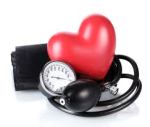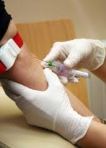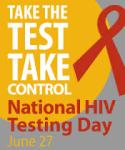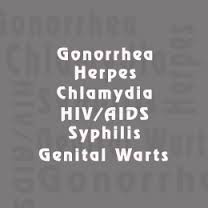-
 Blood Pressure – Every woman should know their baseline blood pressure. Blood pressure can never be exactly the same as the value is influenced by normal body mechanisms like beating of the heart and normal physical activity. Apart from protecting oneself from the known side effects of high blood pressure, B.P monitoring is essential for other reasons. Firstly, it influences your choice of contraceptives as hormone based contraceptives can cause an increase in one’s blood pressure. Secondly, blood pressure can also increase in pregnancy and maintaining a normal baseline blood pressure may mean that a pregnancy associated increase in blood pressure is not very significantly felt.
Blood Pressure – Every woman should know their baseline blood pressure. Blood pressure can never be exactly the same as the value is influenced by normal body mechanisms like beating of the heart and normal physical activity. Apart from protecting oneself from the known side effects of high blood pressure, B.P monitoring is essential for other reasons. Firstly, it influences your choice of contraceptives as hormone based contraceptives can cause an increase in one’s blood pressure. Secondly, blood pressure can also increase in pregnancy and maintaining a normal baseline blood pressure may mean that a pregnancy associated increase in blood pressure is not very significantly felt. - BMI – Body mass Index is a figure that basically correlates one’s height with one’s
 weight. It is a universally accepted way of determining if one’s weight is acceptable for their height. One can then determine if their weight is normal, overweight or underweight. Maintaining one’s weight within normally accepted levels helps one to prevent or manage symptoms of diabetes, hypertension, heart problems, arthritis and joint pains. It is also minimizes some of the negative effects or complications that affect overweight women in pregnancy.
weight. It is a universally accepted way of determining if one’s weight is acceptable for their height. One can then determine if their weight is normal, overweight or underweight. Maintaining one’s weight within normally accepted levels helps one to prevent or manage symptoms of diabetes, hypertension, heart problems, arthritis and joint pains. It is also minimizes some of the negative effects or complications that affect overweight women in pregnancy. - Blood sugar – It would be god practice for every person to measure their blood
 sugar levels at least once in their lives but preferably once a year as general health vigilance. Blood sugar monitoring becomes essential in people who are overweight, people with family history of diabetes in blood relatives, pregnancy especially with weight gain over and above what is medically recommended.
sugar levels at least once in their lives but preferably once a year as general health vigilance. Blood sugar monitoring becomes essential in people who are overweight, people with family history of diabetes in blood relatives, pregnancy especially with weight gain over and above what is medically recommended. - Hemoglobin (Hb) level – Hemoglobin levels are determined by doing a blood test that can measure just the hemoglobin level or more ideally a total blood count that
 will look at other blood parameters as well as suggest the type of anemia one may have if they have. Many women are at risk of being anemic because of excess blood loss and/or increased need for iron during normal periods, abnormal vaginal bleeds due to things like fibroids, breastfeeding, ectopic pregnancies, miscarriages, normal delivery or caesarean sections. In addition, some women may have diets that exclude meats or vegetables which are essential in providing iron which is used in maintaining one’s Hb. Teenagers and college students are usually a risk group for unhealthy diets.
will look at other blood parameters as well as suggest the type of anemia one may have if they have. Many women are at risk of being anemic because of excess blood loss and/or increased need for iron during normal periods, abnormal vaginal bleeds due to things like fibroids, breastfeeding, ectopic pregnancies, miscarriages, normal delivery or caesarean sections. In addition, some women may have diets that exclude meats or vegetables which are essential in providing iron which is used in maintaining one’s Hb. Teenagers and college students are usually a risk group for unhealthy diets. - Normal periods (menses) – Every woman should know roughly at what age their periods began, how many days of flow they have, pattern of flow and how often their

28 day cycle periods come. Every woman should know whether they fall in the 21 day, 28 day or 35 day cycle. They should also make a note of when the periods end. This information is essential so that if there is any change in their periods, they should be the first ones to notice at the earliest time possible. Changes may include heavier periods than normal, newly painful periods, bleeding in-between periods, delayed or absent periods. Things we look out for in women include fibroids, Polycystic Ovarian Disease, Cancer of the cervix, Endometrial (Uterus) cancer, side effects of hormones, pregnancy and its complications amongst other things.
- Normal breasts – Every woman should be doing self breast exam at least once a month. If one tends to forget then as often as one remembers. Breast changes associated with breast cancer can be picked early if one is keen enough to note any changes in their normal breasts. These include changes in the skin color or texture, puckering of nipples, inversion of nipples, breast pain or discharge and of course any lumps in the breasts. If there is family history of breast cancer, family members must be extra vigilant in self breast examinations.

Breast exam - Pap smear result – Any woman who is sexually active should have a regular pap
 smear done to pick on any early changes of the cervix that could lead to cervical cancer. Sometimes endometrial cancers are picked from pap smears. Regular exam should be annually or every two years depending on factors that your health care provider will determine for you. Early diagnosis of cervical cancer can have 100% cure rate.
smear done to pick on any early changes of the cervix that could lead to cervical cancer. Sometimes endometrial cancers are picked from pap smears. Regular exam should be annually or every two years depending on factors that your health care provider will determine for you. Early diagnosis of cervical cancer can have 100% cure rate. - H.I.V status – Every person should know their H.I.V status for their own health being.
 For women, due to pregnancy, deliveries and breastfeeding, this becomes compulsory as part of Ante Natal Care as well as admissions for delivery in some centers. The essence of knowing one’s H.I.V status is so that one can ensure that their immunity remains as high as possible in order to pre-empt opportunistic infections that are the menaces to deal with.
For women, due to pregnancy, deliveries and breastfeeding, this becomes compulsory as part of Ante Natal Care as well as admissions for delivery in some centers. The essence of knowing one’s H.I.V status is so that one can ensure that their immunity remains as high as possible in order to pre-empt opportunistic infections that are the menaces to deal with. - STD status – Every woman must know their STD status because of the adverse effects associated with acquiring an STD. Some STD’s can lead to infertility like Chlamydia which unfortunately is often asymptomatic when acquired. Others can be transmitted to unborn babies while in the uterus or during delivery including syphilis, herpes and gonorrhea.

- Normal bowel habits – Every woman should know what is their normal bowel movement in terms of frequency, amounts and consistency. This becomes essential
 in being on the look-out for colorectal cancer which is a cancer that is pretty common especially in Kenya and affects more women than men. Early symptoms are nonspecific and include changes in bowel movement with constipation or diarrhea, abdominal bloating and blood in stool which may be easily seen or microscopic. Thus, any woman, especially above 40 years with sudden changes in bowel habits should have occult blood checked in stool as well as colonoscopy done to check for cancer of the colon/rectum.
in being on the look-out for colorectal cancer which is a cancer that is pretty common especially in Kenya and affects more women than men. Early symptoms are nonspecific and include changes in bowel movement with constipation or diarrhea, abdominal bloating and blood in stool which may be easily seen or microscopic. Thus, any woman, especially above 40 years with sudden changes in bowel habits should have occult blood checked in stool as well as colonoscopy done to check for cancer of the colon/rectum.
- Comment
- Reblog
-
Subscribe
Subscribed
Already have a WordPress.com account? Log in now.
Great post thanks for sharing this
You are very welcome. Thank you.